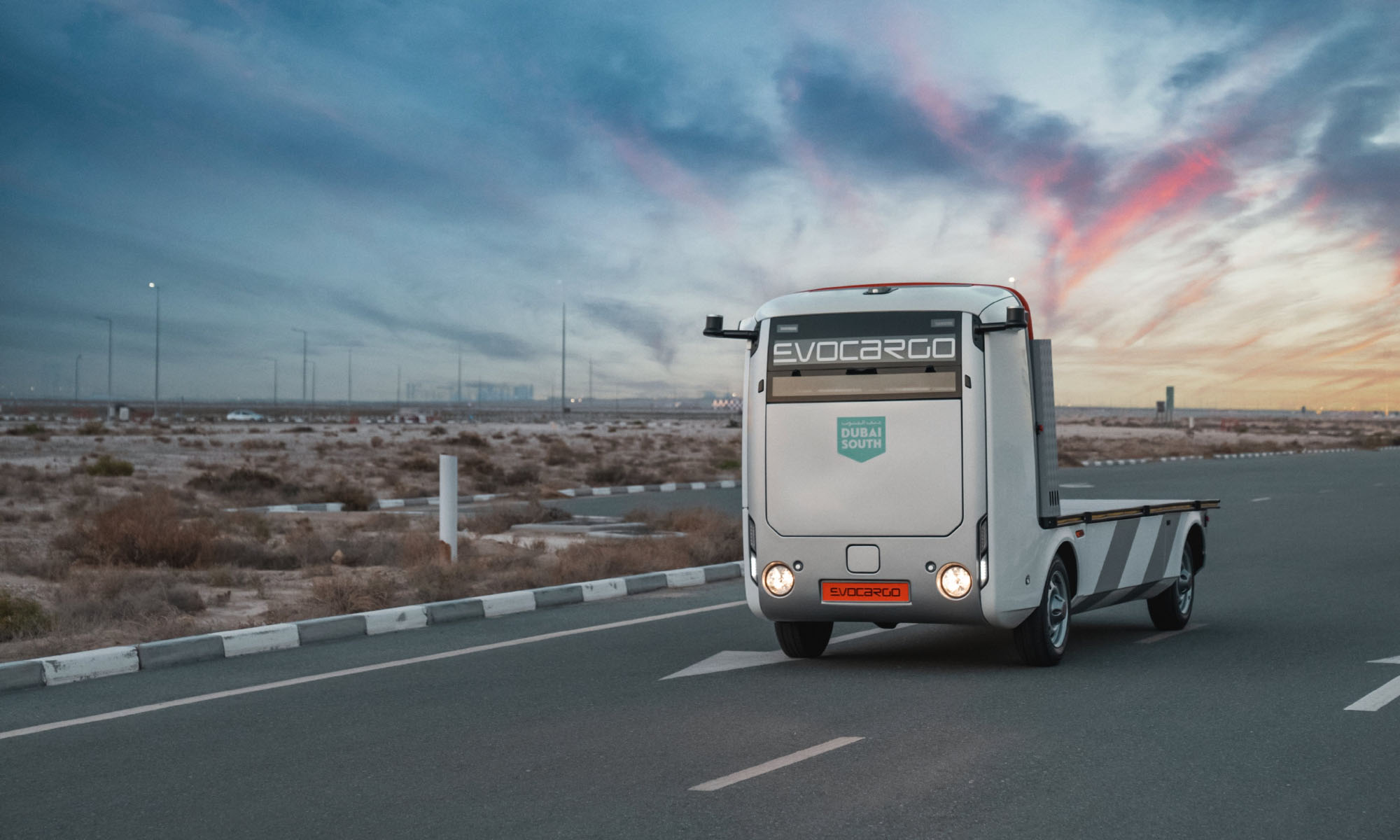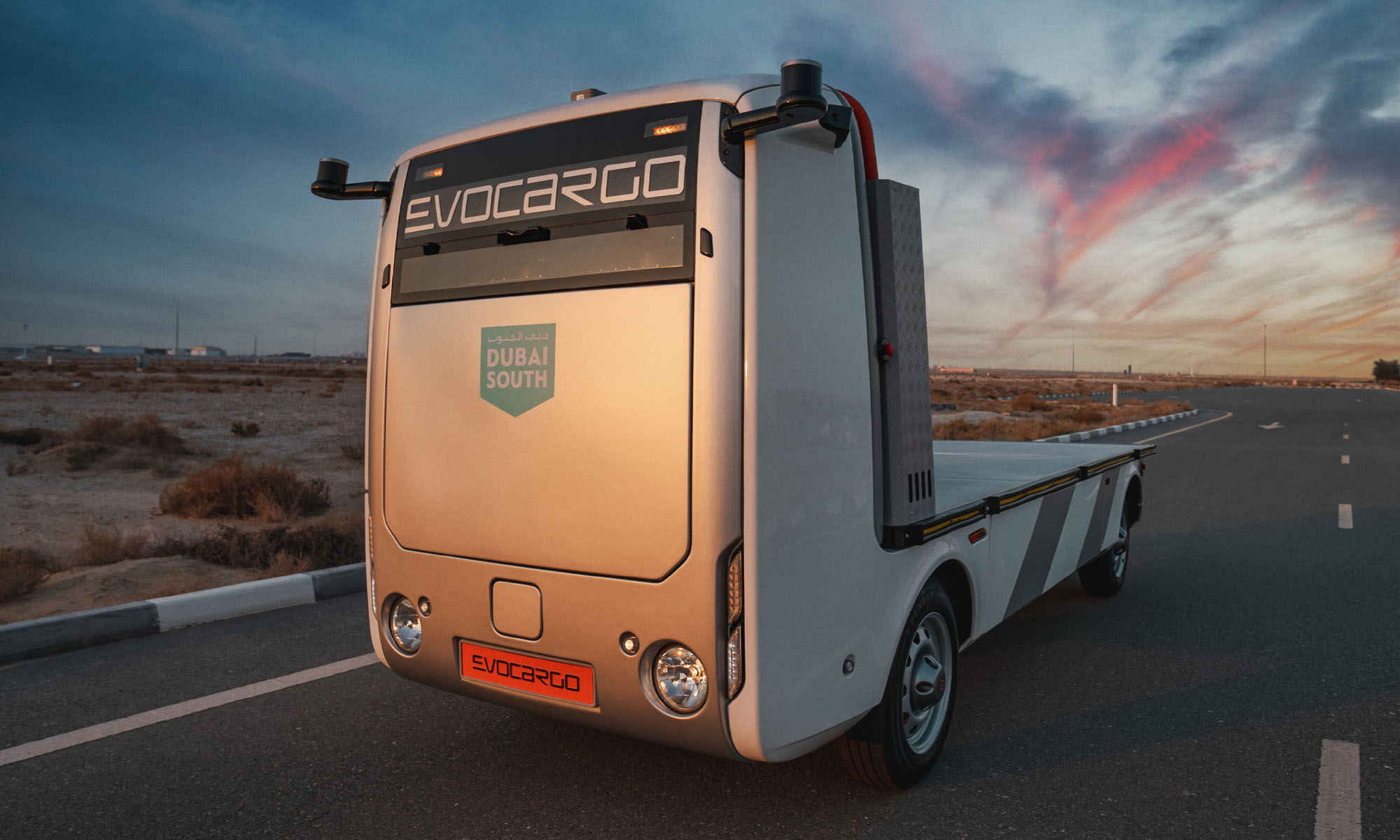News
UAE Prepares To Trial First Driverless Truck At Dubai South
The tests will be conducted at the Logistics District and will help manufacturer Evocargo optimize the vehicles for the MENA region.

Dubai South, an urban master developer focused on aviation and logistics, has agreed to host a testing program for driverless trucks, which will be undertaken by Dubai-based firm, Evocargo.
The rigorous tests will take place at the development’s Logistics District and help to create a fleet of vehicles specifically configured for the climate and conditions of the Middle East and North Africa.
An on-site control facility will be built to manage the autonomous trucks, using remote operators and banks of sensors to monitor progress. The initial trials are aimed at “setting new benchmarks and consolidating the leadership status of the country’s logistics sector” and will help Dubai and the region as a whole to scale its logistics and supply chains for a globally-connected future.
Also Read: Dubai’s DMCC Gaming Centre Adds To A $1.8B Industry
The worldwide autonomous vehicle industry is forecast to pass $1.8 trillion in value by 2030, which represents a staggering growth rate of 39%. The UAE has already undertaken several initiatives to bring driverless vehicles to its roads as part of a broader push toward sustainability and modernization.

As for the Evocargo vehicles, the company’s main truck, the EVO.1, has a lifting capacity of 2,000 kg and can carry six Euro-pallets at 25 kmph. The light truck has a total range of 200 km and can charge from flat in 40 minutes using a special charging station — or up to 6 hours from a regular outlet.
Evocargo’s Dubai South tests will be the company’s first venture into autonomous vehicles as part of a global logistics network, and represent a significant milestone for Dubai as it continues to lead the region as a city of technological innovation.
News
Mamo Completes $3.4M Funding Round To Enhance Fintech Services
The startup will use the influx of cash to expand into Saudi Arabia and across the wider GCC while improving its product offering.

UAE-based fintech Mamo has announced the completion of a $3.4 million funding round that will help the startup extend its market presence and improve its product offering. Investors included 4DX Ventures, the Dubai Future District Fund and Cyfr Capital.
Mamo’s platform offers “payment collection, corporate cards and expense management” to help small and medium-sized businesses consolidate and streamline their operations. With the latest influx of capital, Mamo will further develop its comprehensive suite of services and begin testing its product lines in Saudi Arabia, further extending its footprint across the GCC.
Imad Gharazeddine, co-founder and CEO of Mamo, stated: “We’ve been in the market for a while now and are incredibly proud of what our team has achieved. The holistic and expansive nature of our product offering has helped us continue to grow sustainably. This additional funding will allow us to reach our medium-term goals even faster. The support from new and existing investors is a testament to our strong expertise and the ability to deliver on our customer promise”.
Daniel Marlo, General Partner of lead investor 4DX Ventures, added: “We have immense trust in Imad’s vision, leadership and Mamo’s innovative approach to provide a user-friendly and comprehensive financial solution for SMEs that makes financial management more accessible and efficient. We are proud to partner with them and support their mission”.
Also Read: A Guide To Digital Payment Methods In The Middle East
Amer Fatayer, Managing Director of Dubai Future District Fund’s investment team, also commented: “Mamo’s localized product lines serve as an infrastructure for SME payments and spend management in UAE, a segment that is underserved by the country’s current banking infrastructure. The team has taken a product-first approach to consolidating SMEs’ financial journeys and building a fintech solution deeply embedded in a business’s core operations”.
To date, Mamo has raised around $13 million in investment funding and now boasts a team of 30 people. The company’s intuitive financial services platform has allowed over 1,000 businesses to consolidate their financial operations and significantly reduce payment fees.
-

 News4 weeks ago
News4 weeks agoAmazon Prime Day 2024: Get Ready For 6 Days Of Amazing Deals
-

 News4 weeks ago
News4 weeks agoSamsung Unpacked 2024: What To Expect From The July 10 Event
-

 News4 weeks ago
News4 weeks agoCoursera Report Shows Surge In UAE Interest In AI Upskilling
-

 News4 weeks ago
News4 weeks agoMeet Dubai’s Groundbreaking Smart Robot Delivery Assistant













